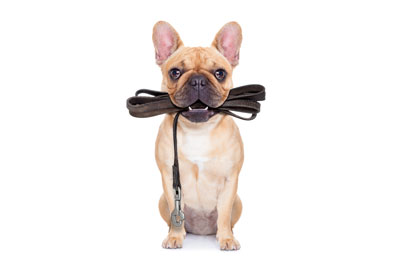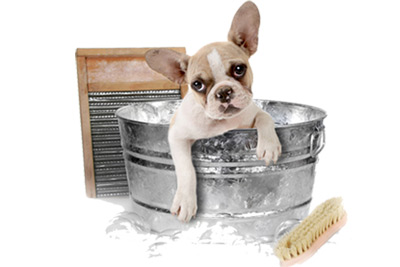
Preparing for the meeting with a breeder
- 17 Dec, 2020
- The race
Preparing for the meeting with a breeder
Checklist for preparing to meet a breeder
YOU
Your experience with animals:
- Have you ever had a pet or is this the first time you will share the life of an animal on a daily basis? If you have ever lived with an animal, was it an adult animal or if you had it when it was small (e.g. puppy, kitten, etc.). Did you keep him for the rest of his life? If not, remember what was the reason that led you to part with it. Overall, how did you find this experience (good and not so good)? Honestly, are you of a patient temperament?
Your environment:
- Do you have children who share your life?
- Are there any known allergy problems that could affect the quality of life of people who share your life?
- Do you have other animals that share your life? How do they behave in the presence of other animals of their own breed or species?
- Are you active in the labour market (full-time or part-time) or retired? Do you have any recurring social or sporting activities that occupy your time?
- How much time do you really have to provide care and companionship for an animal?
- Do you live in the city (apartment, condos, townhouse) or in the countryside? Do you have access to land large enough for the animal to walk around freely? Is this land fenced?
- Do you have a dog park or an animal-friendly area nearby where you can play and exercise your pet?
- Are there any other animals in your neighbourhood? Or to your knowledge, could a neighbour be intolerant to the presence of animals?
Why do you want a pet?
- Identify the reasons and motivation that motivate you to share your life with an animal:
- Because you simply like to share the presence of an animal on a daily basis;
- Because you consider that in a family environment the presence of a pet is essential;
- To please someone else who shares your life;
- Because you are a sportsman and you want an animal to accompany you in your activities and hobbies (running, hunting, etc.);
- Because it's a childhood dream;
- Because you want to compete with your pet;
- Other reasons.
HE BREEDER & HIS BREEDING
The choice of the breeder:
- -Find out more about this breeder's experience. How long has he been a breeder and if he has references to give you?
- A serious and conscientious breeder of the care and time he must devote to his animals rarely does more than two types of breeding at once.
Reproduction:
- How many female spawners does he have and how many of them have litters per year? The recommended number of litters to respect the animal's health is one every 18 months, or ideally one every two years. Find out about the health status of the parents and, if necessary, ask to see each other's health records.
The Interview:
- What regular maintenance does the animal need, for example how often it grooms and does it need special care for its breed? Does he need frequent exercise?
The parents:
- Ask to see the mother and father to see their temperaments. Are they social dogs or do they distrust others?
Life expectancy and health:
- What is the life expectancy of this breed and what are the main diseases that can affect your pet? Has he been vaccinated? Has the animal been spayed or neutered or if it is to be done soon?
- If the animal has had health checks, ask to see the documents about it.
Guarantee and registration of the breed:
- Find out about the duration and scope of the guarantee offered by the breeder. If the animal becomes ill, does it include health care coverage, replacement of the animal or reimbursement?
- Required to see and have copies of the record confirming the breed of your animal's sire and sire.
- Required a signed deed of sale to confirm the acquisition of this animal from the breeder and that the animal is purebred.
Environment:
- Is the breeding family type or in enclosures? Is it isolated or in an environment conducive to development and discovery? Ideally, it is important to develop the social aspect of the animal that it is in regular contact with the humans who devote attention and care to it. The presence of children in a breeding environment is also a plus that will positively affect the animal and will familiarize it with their spontaneity.
THE ANIMAL - THE CHOICE
The temperament:
- By observing it among the litter, determine if the animal seems fearful or rather go-getter or playful. Or is he curious, is he coming to you? Does it allow itself to be touched or even easily manipulated?
Weaning:
- -A dog finishes weaning between 8 to 10 weeks, but it is better to wait 10 weeks before separating it from its mother. The same applies to the cat. In both cases, the animal must also develop its independence to its brothers and sisters, so it is better to wait until weaning is complete.
Male or female?
- The female is generally more docile. Less inclined to dominance, she will not attempt to flee to mate either. In addition, the female rarely seeks to mark her territory, although this may happen. It is therefore rarer than it paws it at any time on your furniture corners, plants or visits...... to relieve itself and mark its territory. Not sterilized, however, it will be more likely to experience some discomforts, including heat and menstruation.
- The male has more dominance traits that can be slightly reduced when sterilized. More robust than the female, its profile generally makes it a good guardian and instinctively it can be more tempted than the female by running away. However, it should be remembered that when the animals have played well and exercised enough, they are of a calm temperament and become even more pleasant pets.
The final choice:
Depending on your lifestyle and experience, it will generally be the breeder who will advise you in order to propose the litter animal that would best suit your personality and expectations. This is why a good exchange with the breeder is always an additional chance of success in order to select your new friend for his life









